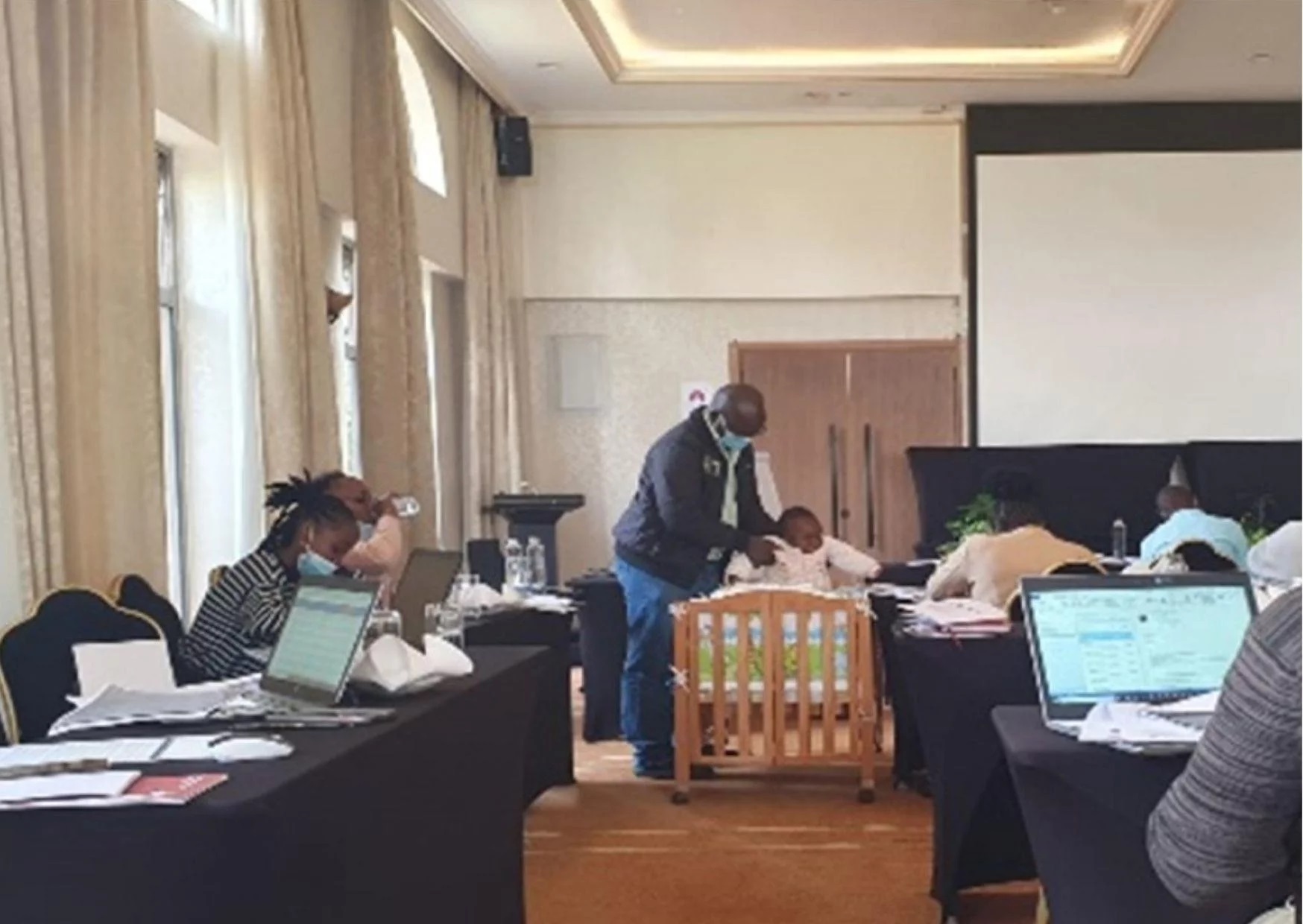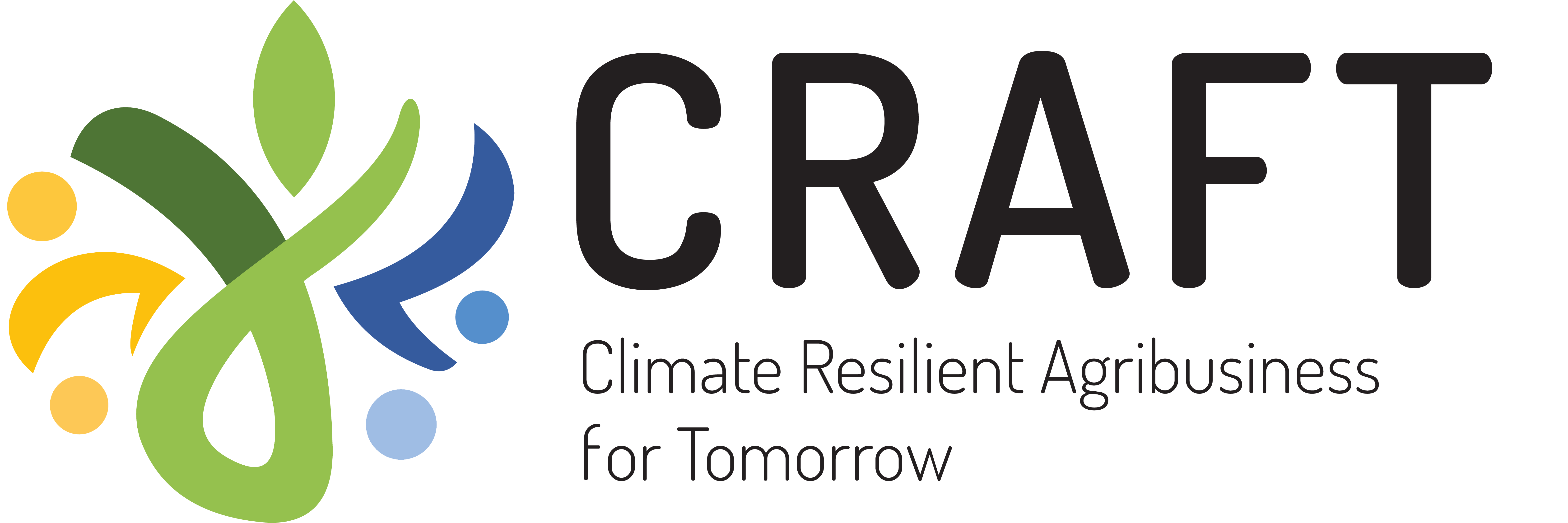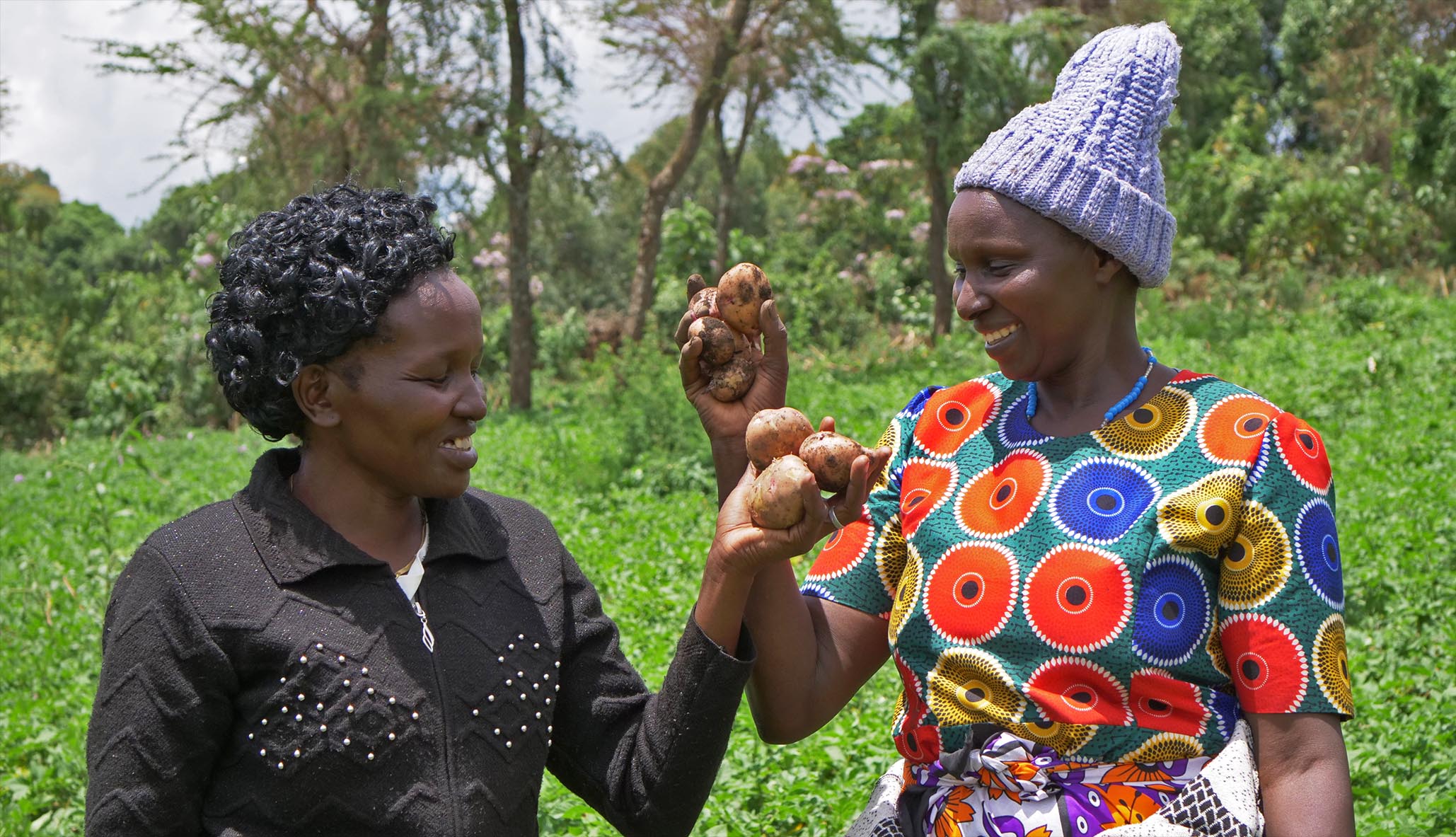Located in Kenya, Shalem Investment Ltd has instituted family friendly practises that are mindful of women’s domestic roles, thereby ensuring their meaningful participation in the agricultural sector.
Shalem is a social enterprise whose core business is buying, processing, and selling milled flour and whole grains to selected markets. Shalem embeds a market-based approach to meet the needs of small holder farmers, such as accessibility to affordable and reliable farm inputs, as well as market for their produce.
Through its partnership with the Climate Resilient Agribusiness for Tomorrow (CRAFT) Project, Shalem aims to train 30,000 smallholder farmers (of these, 67% will be youth below 35 years) by 2022 in Climate Smart Agriculture (CSA) practices and technologies using the farmer extension service.
To ensure women and youth’s meaningful participation in agricultural leadership amidst the climate challenge, Shalem leverages on CRAFT’s gender approaches. These include: Balancing Benefits [1] which is informed by the project’s gender strategy; Opportunities for Youth Employment (OYE) [2] which acts as a match maker between young people and private companies, as well as the Gender Equality Social Inclusion (GESI) [3] strategy which promotes the removal of institutional and structural barriers and increases participation and benefit sharing by all – including women, youth and other marginalised groups.
The above approaches are informed by the fact that the gender we possess (either male or female) assigns us to different roles, perceptions, and responsibilities in society, and the activities we engage in are ascribed through socialisation – our roles differ relative to the community and setup we come from.
For example, in most communities, women are presented with three major roles: productive (tasks contributing to household economy such as crop and livestock production), reproductive (tasks to reproduce and care for the household), and community management (tasks supporting community improvement and communal social events and services).
Reproductive roles usually encompass a variety of unpaid tasks, such as food preparation, caring for young children, the sick and the elderly, collecting water and firewood, as well as managing other household hygiene and sanitation needs.
Given that women shoulder the primary responsibility for these tasks, the disproportionate obligation holds back their participation in agriculture, leadership, and other economically viable activities.
Accordingly, Shalem has put in place practises that not only reduce but also help redistribute such care responsibilities between female smallholder farmers and other company stakeholders as a means of ensuring equitable participation in development processes.
‘Mama Jim’, a single mother training farmer groups
For example, Poline Kathure, a CRAFT Trainer of Trainers (ToT) attached to Shalem under the CRAFT Project. Also known as “Mama Jim,” Pauline is a 22-year-old single mother of a 10-month-old baby boy, and is raising him independently.
This has not stopped her passion for training ten farmer groups in CSA practises and technologies on a daily basis. “I am a single mother to a 10-month-old baby boy. At first, it was not easy working with him but with the support of my mother who plays an active role in raising my child, I have been in position to manage. Additionally, I am fortunate that my groups usually meet in the morning; this enables me go train and be back home in time for my mother to go attend to her other personal business,’ Poline shares.
She shares a recent experience during which she attended a residential training with her baby, and how SVN CRAFT and Shalem staff members stepped to help upon realising that she was being distracted with child-care giving roles at the event.
"I was recently invited to attend a one-week refresher training during which I came with my baby. The experience was challenging because at night, my baby wouldn’t sleep properly since the environment was new for him. This disrupted my sleeping pattern. As if that was not enough, during the day, I had to juggle between attending to him and being alert in the training. Whereas the experience was challenging, I am very grateful to the SNV CRAFT and Shalem teams for requesting the hotel to provide me with a crib that helped settle and calm my baby, thereby enabling to participate actively in the training. Additionally, the team also assisted in providing my baby with the necessary care which included supervision during playing and napping times," she adds.

To enable mothers to practise breast feeding, it is important for development organisations to incorporate policies that support breastfeeding, provide designated spaces for breastfeeding or expressing milk, allow flexible scheduling to support breast feeding, provide on-site childcare, and offer other reproductive management services and support at workplaces and/or during trainings.
In addition to easing parenting stress, this improves workplace and business performance, and leads to happier families and healthier children.
Written by: Winnie Musiomi (Gender consultant), Joyce Mbingo (Agronomist Advisor) and Bibiana Wanalwenge (Media & Communications)









